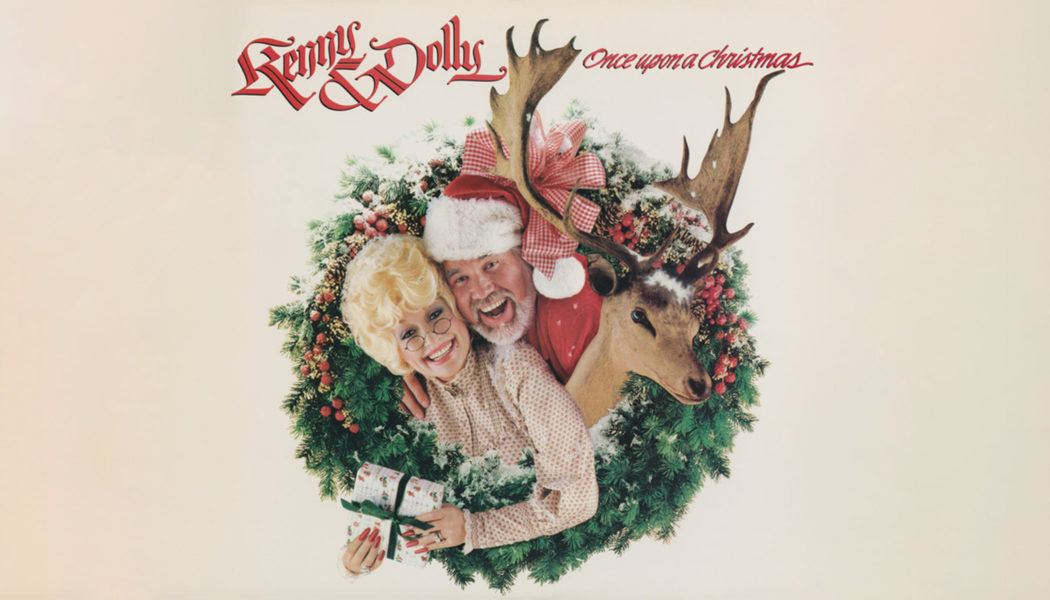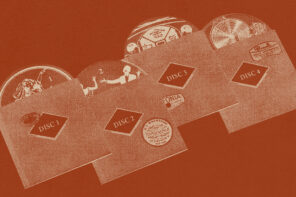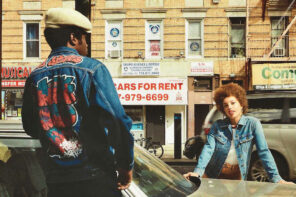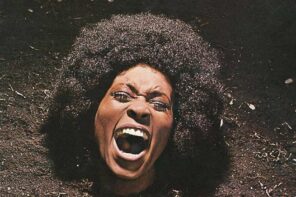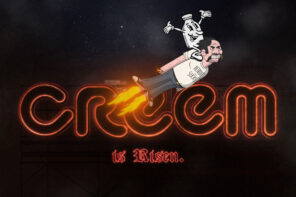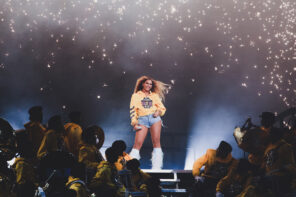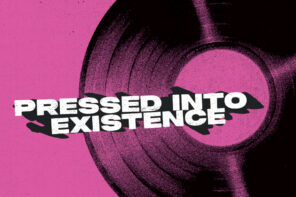With all due respect to Mariah.
By Keith Plocek
Is there a better holiday album than Once Upon a Christmas? That’s a rhetorical question, but you’re welcome to go ahead and try to answer it.
Are you thinking of A Charlie Brown Christmas? That’s a good one, to be sure, and Charlie Brown’s little Tannenbaum surely brings home the yuletide message of finding peace with what you’ve got. But that same moral appears on Once Upon a Christmas in the tune “Hard Candy Christmas,” with lyrics that remind us “I’ll be fine and dandy / Lord, it’s like a hard candy Christmas / I’m barely getting through tomorrow / But still I won’t let sorrow bring me way down.” And you can actually sing along to that tune, unlike most of the piano numbers on Charlie Brown.
Maybe now you’re thinking of Mariah Carey’s Merry Christmas? The woman has pipes—no denying that!—but there aren’t as many original compositions on that disc, and Carey’s admittedly outstanding vocal range can’t match the magic of the many duets on Once Upon a Christmas. When you’ve got two people singing, “Christmas Without You” is less about missing someone so much as imagining how great it’s going to be when you see them again: “Wherever you go, you light up the room / I hope that you’ll make it back home soon / ‘Cause it won’t feel like Christmas without you.”
Let’s skip right over Burl Ives, Reba McEntire, NSYNC, Nat King Cole, Justin Bieber, Barbra Streisand, James Brown, the Jackson 5 and the Trans-Siberian Orchestra. The best holiday album is Once Upon a Christmas, and we’re not just saying that because the male singer looks like a rhinestone Santa Claus. We’re talking about Kenny Rogers, of course, who teamed up with Dolly Parton in 1984 to put out ten perfect Christmas tracks, half of them written by Dolly herself. The original pressing of the record even had a sticker promoting their TV special that year, a marketing move born out of the swagger that the album would be a bestseller before December. And that it was, certified platinum barely a month after its release. The album twangs from the jump, and you’d be forgiven for thinking you’d dropped the needle on a random country record till you hear the words to the first track, “I Believe in Santa Claus.” This one’s a Dolly original, and she believes in Santa Claus, as well as miracles, magic, family, country and you. Kenny believes in all that too, but the ebullience of the lyrics is all Dolly. She wrote the album’s most memorable songs, and by the time the album was re-released in 1997, the two Kenny solo performances (“The Christmas Song” and “Silent Night”) had been removed in favor of her rendition of “Hard Candy Christmas” from The Best Little Whorehouse in Texas.
Kenny might have a white beard, but Dolly is Christmas morning incarnate.
Kenny might have a white beard, but Dolly is Christmas morning incarnate. Put them together, and you’ve got “A Christmas to Remember,” another Dolly original that turns up the heat with references to a fast-talking stranger and slow-burning wood, as well as springtime feelings in the middle of December. It’s a hotblooded contrast to the wholesomeness of “With Bells On,” where we’re reminded again of the magic of being home for the holidays. Spending time with family is a huge part of Christmas for many folks, but Dolly is a gospel gal at heart, and the final song on the album has her gazing upward in search of the true meaning of the holiday.
“Once Upon a Christmas” tells the story of the birth of Jesus Christ, and it sounds like an old hymn, the kind that might’ve even been sung in Latin. But once again we have a Dolly original, proving just how talented, how unique, she really is. We hear the story of Bethlehem, of a King born in a manger of hay, of the world rejoicing. Dolly and Kenny’s voices soar on this track, tempting even the most secular of listeners to wonder if maybe, just maybe, all this really happened. That’s the power of Dolly. Both the 1984 and 1997 releases of Once Upon a Christmas included some holiday standards, such as “Winter Wonderland” and “The Greatest Gift of All.” The two country superstars sing those songs well, and Dolly’s solo performance of “White Christmas” rivals the original Bing Crosby version. But it’s Dolly’s own compositions that set this album apart from other pop holiday albums, which usually include two, maybe three, new songs at most—definitely not five original Christmas songs, all wonderful in their own way. That feat would stretch the talents of even the most magnificent performers.
But we’re not talking about those other singers. We’re talking about the woman who wrote “Jolene” and “I Will Always Love You” on the same day. We’re talking about the woman capable of adding so much new meaning to an old holiday. We’re talking about Dolly.
All we want for Christmas is Dolly—sorry, Mariah.

